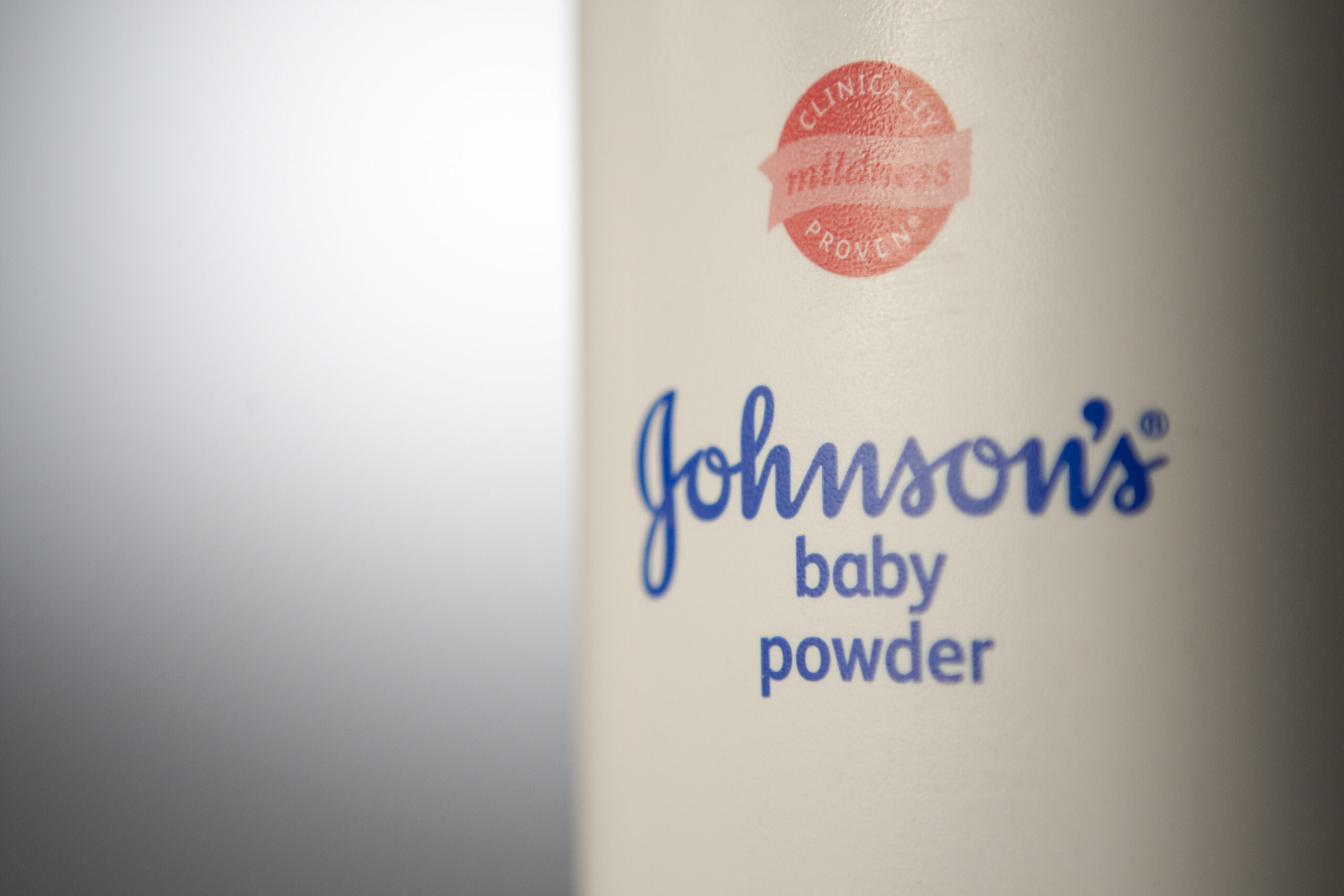Shopping
J&J’s Court-Shopping Strategy Pits New Jersey Home Against Texas

Johnson & Johnson’s bold move to skirt a US court in New Jersey and seek a potentially friendlier venue in Texas to settle claims its baby powder gave women cancer faces a key decision as soon as Thursday.
A federal judge in Texas is poised to rule whether J&J can access his Houston court, located 1,600 miles away from the company’s New Jersey headquarters, to hear the case. It marks the health-care company’s latest attempt to resolve thousands of lawsuits through a strategy involving Chapter 11 proceedings, a controversial gambit that’s been criticized by legal experts and challenged by the US Justice Department and lawyers for women who don’t support the settlement.
J&J created a corporate shell to absorb the cancer claims and file for bankruptcy, a tactic that’s already been stopped twice by the influential US Third Circuit Court of Appeals, which oversees New Jersey. In those rulings, the court said bankruptcy wasn’t warranted because the unit ultimately had the backing of its deep-pocketed parent. Now J&J, whose current bid employs a newly formed Texas subsidiary, is fighting to remain in Houston under Chapter 11 rules that allow corporations to pick the court of their choosing.
Related: J&J Unit Files for Bankruptcy to Advance $10B Talc Settlement
The maneuvers “are an assault on the very integrity of the bankruptcy system,” the Justice Department’s bankruptcy watchdog said in arguing that the case should return to New Jersey, where the first two bankruptcies were thrown out. Even legal scholars who are sympathetic to J&J’s position agree that the company is using the Houston court to avoid further unfavorable rulings from the Third Circuit.
J&J’s $8 billion baby powder settlement is supported by roughly 83% of the women who voted on it and has a better shot of getting approved if the case proceeds in Texas court. J&J has said its talc-based products are safe and lawsuits against the company lack merit.
There are potentially broad implications to any ruling. A decision in J&J’s favor may motivate corporations facing lawsuits alleging their products are defective or toxic to implement the same strategy, known as the Texas Two Step, and bypass other Chapter 11 hubs like Delaware, which is also overseen by the Third Circuit.
Related: J&J Eyes Texas as Venue for Next Round of Baby Powder Fight
Appellate judges overseeing New Jersey concluded that J&J wrongly put a unit into bankruptcy in order to clear cancer-related debts the $385 billion company could afford to pay. Returning to New Jersey, or any other mid-Atlantic state under the Third Circuit, would likely end the same way, said University of Chicago law professor Anthony J. Casey.
“It’s not that you are forum shopping,” Casey said. “It is just a fact that the Third Circuit is off limits.”
J&J’s new talc subsidiary, Red River Talc LLC, is incorporated in Texas, which is where its assets are located and where women who voted in support of the plan selected as the appropriate legal forum, J&J Vice President of Litigation Erik Haas said in statement. Law firms representing the vast majority of claimants have long advocated filing the bankruptcy in Texas, Haas said.
Related: J&J Lifts Baby Powder Settlement Bid to More than $8.2 Billion
“By voting for the Plan, 83% of the claimants expressed their desire for this case to be filed there,” he said.
Bankruptcy rules let a company file anywhere the firm, or one of its smaller units, has its “principal place of business.” That has become an easy test to meet. Judges have ruled that it’s enough for a company to have a bank account in a city, or for a small unit of a large enterprise to file incorporation papers in a state.
Over the last few decades, the loose interpretation has driven most big, corporate insolvency cases to three federal court districts: Wilmington, Delaware, Manhattan and Houston, according to data compiled by Bloomberg.
‘Legal Loopholes’
A handful of lawmakers in Washington have tried unsuccessfully over the years to tighten Chapter 11 venue rules, despite support from groups like the National Association of Attorneys General, which represents the top government lawyers in each state.
“It’s clear what Johnson & Johnson is doing — like so many other giant companies, it’s relying on legal loopholes to try to shield itself from liability and delay justice,” said US Senator Elizabeth Warren, a Democrat from Massachusetts. “As I’ve said for years, we need to close these loopholes to stop companies from abusing our bankruptcy system, and make sure they are held accountable.”
Red River said in an Oct. 2 court filing that women asserting claims against the J&J subsidiary “hail from all corners of the United States” and roughly 8.2% of plaintiffs reside in Texas, compared to less than one percent who reside in New Jersey.
Houston has become a popular landing spot largely because of a unique procedure that sends big Chapter 11 cases to just one of two judges. The process is different than other major bankruptcy hubs such as New York, Delaware and New Jersey, which randomly assign large cases to more than half a dozen judges.
The tactics some companies have used to get to Texas bankruptcy court have been challenged. The Justice Department objected to San Diego-based Sorrento Therapeutics Inc.’s 2023 Texas filing, for instance, which came just after a subsidiary deposited $60,000 into a local branch of a New York chartered bank and a lawyer opened a post office box in a Houston suburb. Judge Christopher Lopez denied the Justice Department’s demand, which, unlike in J&J’s case, wasn’t raised until a year after Sorrento sought court protection.
Creditors of Montana-based talc supplier Barretts Minerals Inc. last year lost a bid to move the mining firm’s bankruptcy out of Texas. Barretts had facilities in Bay City, Texas, but days before filing Chapter 11 also purchased real estate leased by operators of a McDonald’s and Whataburger. A Barretts executive testified the real estate deal strengthened the firm’s claim to have its bankruptcy in Texas.
Prior Attempt
In 2021, when J&J made its first attempt to settle talc litigation through Chapter 11, they put a different subsidiary into bankruptcy in North Carolina. However, a North Carolina judge later ruled that the bankruptcy belongs in New Jersey, where the consumer-health company is based and where most of the litigation had been fought over. The Justice Department said in court papers that J&J shouldn’t be permitted to ask a different judge in Texas to reconsider that earlier venue decision.
Lawyers for women backing the talc settlement have said the decision to put the J&J subsidiary in Texas was a key aspect of the deal they bargained for, which is supported by a large majority of claimants who voted in favor of it. The Smith Law Firm PLLC, which represents more than 11,800 claimants, said in a court filing that Judge Lopez should respect “the preferences of the individuals harmed by the Debtor’s prepetition practices.”
The support J&J has among tens of thousands of women who have voted on the plan is the best argument the company has for keeping the case in Houston, said Jay Westbrook, a professor at the University of Texas at Austin School of Law. But one of opponents’ strongest arguments against the strategy is the fact that a North Carolina judge already ruled the earlier bankruptcy belonged in New Jersey, he said.
The Texas filing is “a blatant attempt to go around the prior decisions,” Westbrook said.
The bankruptcy case is Red River Talc LLC, 24-90505, US Bankruptcy Court for the Southern District of Texas (Houston).
Top photo: Johnson & Johnson baby powder is the subject of numerous lawsuits alleging it caused ovarian cancer in women. Photographer: Scott Eells/Bloomberg.
Copyright 2024 Bloomberg.










